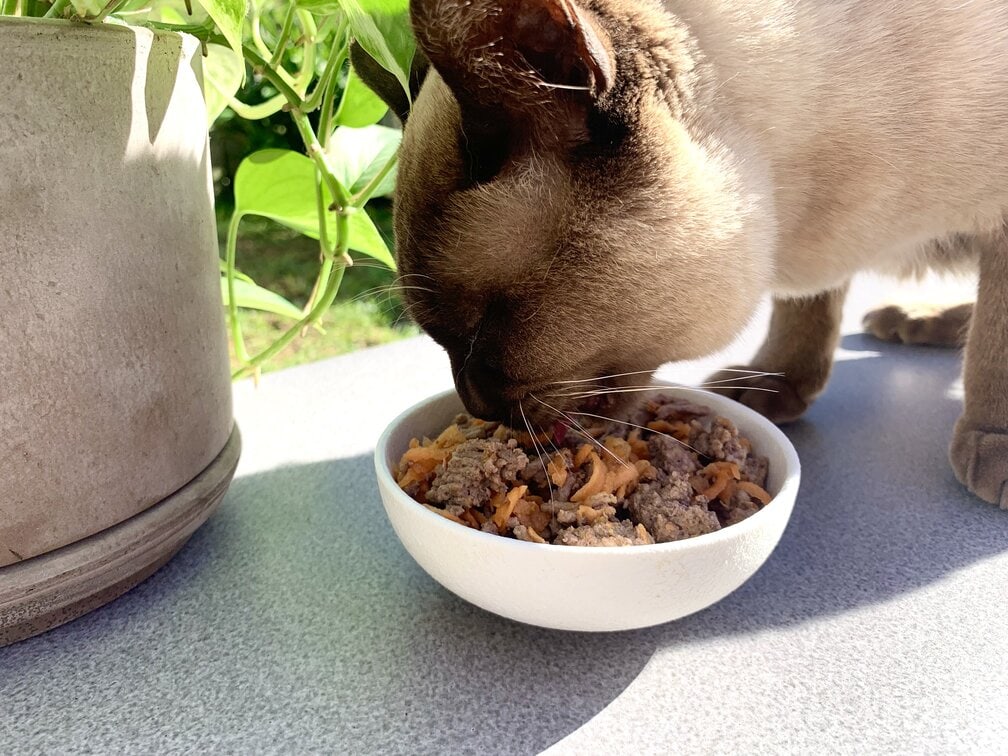Our furry friends need a healthy, balanced diet to stay fit and energetic. Just like humans, cats need several important nutrients to grow and stay healthy. It’s not enough to fill your cat’s food bowl; he also needs the building blocks he needs to live a long and healthy life. In this comprehensive guide, we look at the most important parts of a healthy cat diet, from understanding their nutritional needs to making smart food choices.
1. Understanding Nutritional Needs:
Cats are obligate carnivores, meaning their bodies subsist on a diet consisting primarily of animal protein. Their food needs are very different from those of omnivores such as dogs or humans. Proteins, amino acids, vitamins, minerals, fatty acids and water are all important ingredients for cats. Getting the right amount of these nutrients is important for their health.
2. The Role of Protein:
The most important part of a cat’s diet is protein. It is important for building and healing tissue, maintaining a healthy coat and helping the immune system. The bulk of your cat’s diet should consist of high-quality animal protein, such as protein from meat and fish.
3. Taurine and Amino Acids:
Proteins are made up of amino acids and cats have different amino acid needs than other animals. Taurine is an amino acid that is especially important for cats. A deficiency in taurine can lead to serious health problems, such as heart problems and visual disturbances.
4. Essential Vitamins and Minerals:
Vitamins and minerals are important for many aspects of the body, from healthy bones to a strong immune system. Cats need more vitamins, such as vitamins A and D, and less of the other vitamins. To ensure these nutritional needs are met, a balanced diet is important.
5. Fatty Acids for Healthy Skin and Hair:
Omega-3 and Omega-6 fatty acids are good fats that contribute to your cat’s overall health. They help keep skin and hair looking healthy and shiny. These important fatty acids are found in fish oil and some animal fats.
6. How Important it is to Stay Hydrated:
Cats are notoriously seldom thirsty, making them prone to dehydration. Adding wet or canned foods to their diet can help them drink more water. Getting enough water is important for the health of the kidneys and your entire body.
7. Commercial vs. Homemade Diets:
Cat Food for Sale in Stores
There are many types of commercial cat food, such as dry kibble, canned food, and semi-moist food. Cats have specific nutritional needs that can be met with high-quality commercial cat food. Look for products with meat as the main ingredient and avoid those with a lot of fillers or added chemicals.
Homemade Cat Food
When you make your own cat food, you have more control over the ingredients that go into it. But coming up with a balanced homemade meal can be tricky. You should consult your veterinarian or nutritionist to ensure that the food you are preparing for your cat meets all of its nutritional needs.
Get Used to a New Diet
Cats can be picky eaters, so changing their diet should be done slowly and carefully. Rapid changes can upset your stomach. When changing your diet, mix small amounts of new foods with old foods and slowly add more of the new foods over a week or two.
Monitoring and Adjusting the Diet
Cats have different nutritional needs based on factors such as size, activity level and health. Your cat will need regular vet visits so you can monitor his health and adjust his diet if necessary.
8. Common Diet Mistakes to Avoid:
Overfeeding
Too much food can make cats fat, which is a common health problem. Measure your cat’s diet according to the feeding rules and adjust it to his or her weight and activity level.
Not Drinking Enough Water
As already mentioned, cats do not like to drink too much water. Make sure they always have access to clean, fresh water and consider feeding them wet food to help them get more fluids.
Imbalanced Homemade Diets
If you’re considering a homemade diet, it’s important to make sure it contains all the nutrients you need. Don’t just use recipes you find online, as they may not be enough to meet your cat’s unique nutritional needs.
Putting Off Visits to the Vet
Regular vet visits are important to monitor your cat’s overall health and nutrition. Before making major changes to your pet’s diet, consult your veterinarian to ensure no adverse effects occur.
Conclusion:
To create a healthy diet for your cat, you must understand your cat’s nutritional needs and commit to providing your cat with high-quality, well-balanced meals. By focusing on key nutrients, including the right amount of protein, fat, vitamins and minerals, and considering store-bought and homemade options, you can ensure your cat has a long and healthy life.
FAQs:
1. Can I feed my cat a vegetarian or vegan diet?
Cats are obligate carnivores, meaning their nutritional needs are best met with animal protein. A vegetarian or vegan diet can lead to nutrient deficiencies and health problems.
2. Can I feed my cat and my dog the same food?
Cats and dogs have different nutritional needs. Cat food should be specially formulated for cats to ensure they receive the necessary nutrients.
3. How often should I feed my cat?
Most adult cats are fine with two meals a day. Consult your veterinarian for recommendations based on your cat’s age, weight and activity level.
4. Can I give my cat a treat?
An occasional treat is fine, but they shouldn’t be a major part of your cat’s diet. Look for high-quality protein foods.
5. What should I do if my cat has a dietary restriction?
Consult a veterinarian to determine the best course of action. A prescription diet may be recommended to meet your cat’s specific needs.
